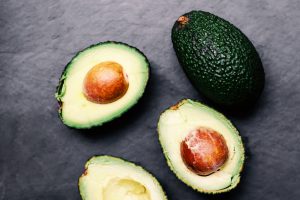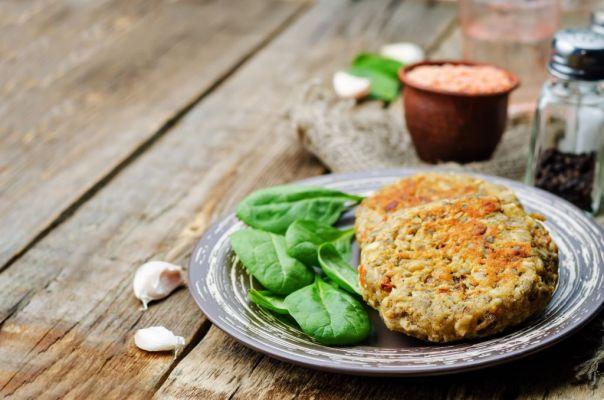Let's take a moment to better understand this midlife crisis of metabolism. We'll separate fact from fiction and offer some tips to help you move forward.
4 reasons for slow metabolism
We know that aging is part of it. Formulas that seek to tell our ideal daily calorie consumption take into account our age and as we age, they spit a smaller calorie budget in our face. But why?
1. Your lifestyle is more sedentary (and stressful!)
 Reality is our home… School, work, cities and culture itself are part of a reality that does not help us to make easy or healthy choices.
Reality is our home… School, work, cities and culture itself are part of a reality that does not help us to make easy or healthy choices.
Sitting down for long hours, with looming projects and a hectic journey is the perfect formula for a sedentary and stressful life! During your most difficult moments, you will feel unable or unmotivated to work even though exercise has been shown to help reduce stress. Since low physical activity and chronic stress are linked to obesity, it's easy to understand why for decades this lifestyle has increasingly revealed itself in their love handles. It's not your fault, the environment led you to this, but that doesn't mean you can't go to fight!
2. Your thyroid is no longer the same
As your body ages, your organs follow suit, and that goes for your thyroid gland too. Its job is to produce a powerful hormone, capable of regulating metabolism, which directly affects your weight. Excess of this hormone can make you irritable, nervous, with sleep disturbances and weight loss - classic symptoms of hyperthyroidism. Lacking, you feel lazy, depressed and gain weight. Although the American Thyroid Association estimates that only 12% of the US population has a thyroid problem, speak to your doctor if you are experiencing any of these symptoms, as research has found that this is a condition that also increases with age. .
3. Your sex hormones are on the decline
Aging can be associated with a drop in estrogen and testosterone in men and women respectively. Research shows that a man's testosterone steadily drops from his 30s to his 40s onwards, which makes it harder to maintain lean body mass. In women, the drop in post-menopausal estrogen can lead to irritability, loss of bone density, sleep disturbances, and an accumulation of belly fat (visceral fat).
4. As you get older, your body composition changes
Most people tend to lose lean mass as they age if they don't act properly to maintain it. And, as you get older, it's easier to gain fat. The result is a different body composition than when you were younger. According to an article published in the Journal of Applied Physiology, about half of a young adult's body weight is made up of lean mass, but by the time they reach their 75s to 80s, that mass is only a quarter of their weight. body. While the “muscle burns more calories than fat” theory has been dominating these days, we can agree that at least it has a little bit of truth — even if the number of calories burned is small.
5 Nutrition Tricks to Fight Metabolism Aging
If the clock ticking has been causing you despair, calm down, take a deep breath! Here are some nutrition tricks that can help you:
1. Reduce the addition of sugar

A diet full of sugars can drain your blood and is associated with increased body weight. If your goal is to lose weight, cut back on snacks and drinks with refined and processed carbs (think cookies, cakes, candy, and sodas). Sweets are great, but in moderation. On special occasions, allow yourself to enjoy a little, but in small amounts and savor the taste in every bite or sip, this will help you feel more satisfied even if the portion is small.
2. Eat plenty of protein
Proteins are made up of amino acids, crucial for lean mass growth and retention. To help improve your metabolism, add strength training to your routine, and add portions of animal or plant protein to your meals. If you want more in-depth details, you need a minimum of 0.8 grams of protein per 1kg, but if you work out, that number goes up to 1.3g/kg.
Bonus: when you eat protein, it takes your body a while to digest it and this is what boosts your metabolism.
3. Stay hydrated with water
The human body is made up of 75% water and all chemical reactions in your body need this element to happen. For starters, it's good to use your body weight as a guide. Divide your weight by 30. So if you weigh 70kg, you should drink 2.3 liters of water a day. If you are not used to it, invest in flavored waters, with mint, lemon, orange or strawberry leaves, the choice is yours.
4. Eat little, but several times a day
Eating in small amounts but several times a day doesn't increase your metabolism — that's a myth! But, these small amounts keep you from overeating at the next meal.
5. Choose a balanced and varied diet
Eat lots of fruits, vegetables, whole grains, lean protein and dairy products so you can absorb all the nutrients your body needs. A deficiency of one or more nutrients can impair your metabolism, so why take the risk? Research shows that obese people have high rates of micronutrient deficiency, although the reason is not yet known.
There's no way, age comes to anyone! However, maintaining healthy habits can slow down the process and that's up to you! Bet on your nutrition, drink water, have a healthy diet, exercise, and if it's still not enough, look for your doctor, he will be able to investigate your condition further.
Text written by Amanda Magliaro Prieto of the Eu Sem Fronteiras Team.

























